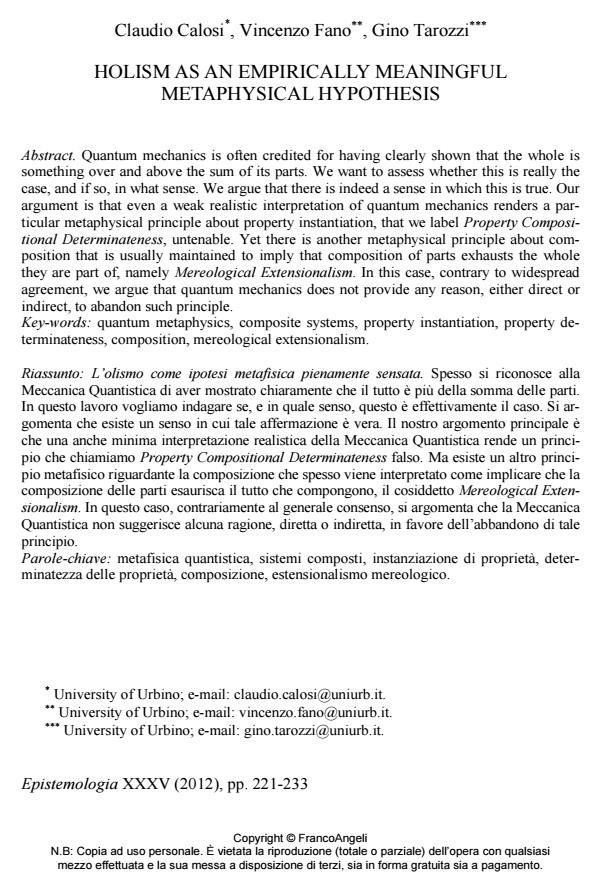Holism as an empirically meaningful metaphysical hypothesis
Journal title EPISTEMOLOGIA
Author/s Claudio Calosi, Vincenzo Fano, Gino Tarozzi
Publishing Year 2012 Issue 2012/2
Language English Pages 13 P. 221-233 File size 618 KB
DOI 10.3280/EPIS2012-002004
DOI is like a bar code for intellectual property: to have more infomation
click here
Below, you can see the article first page
If you want to buy this article in PDF format, you can do it, following the instructions to buy download credits

FrancoAngeli is member of Publishers International Linking Association, Inc (PILA), a not-for-profit association which run the CrossRef service enabling links to and from online scholarly content.
Quantum mechanics is often credited for having clearly shown that the whole is something over and above the sum of its parts. We want to assess whether this is really the case, and if so, in what sense. We argue that there is indeed a sense in which this is true. Our argument is that even a weak realistic interpretation of quantum mechanics renders a particular metaphysical principle about property instantiation, that we label Property Compositional Determinateness, untenable. Yet there is another metaphysical principle about composition that is usually maintained to imply that composition of parts exhausts the whole they are part of, namely Mereological Extensionalism. In this case, contrary to widespread agreement, we argue that quantum mechanics does not provide any reason, either direct or indirect, to abandon such principle.
Keywords: Quantum metaphysics, composite systems, property instantiation, property determinateness, composition, mereological extensionalism.
Claudio Calosi, Vincenzo Fano, Gino Tarozzi, Holism as an empirically meaningful metaphysical hypothesis in "EPISTEMOLOGIA" 2/2012, pp 221-233, DOI: 10.3280/EPIS2012-002004